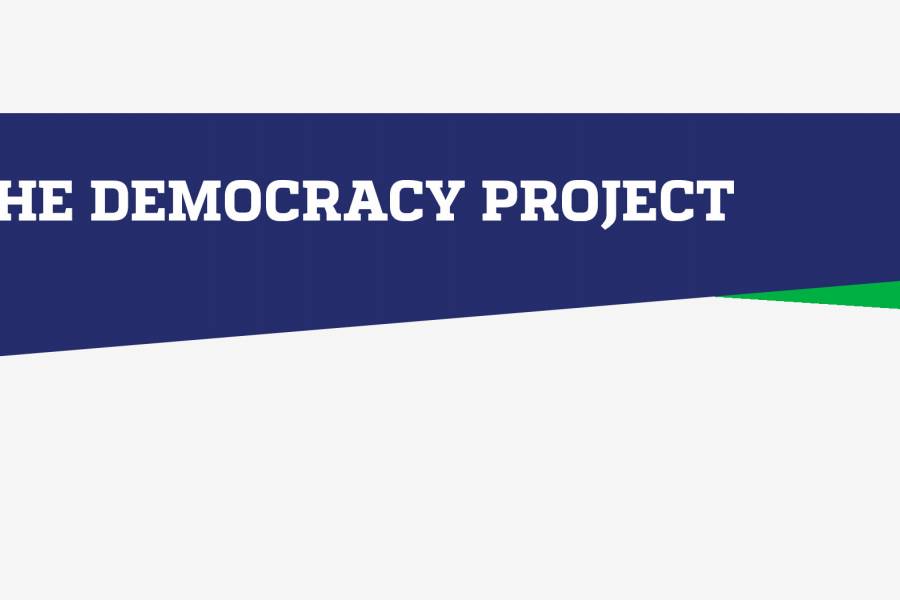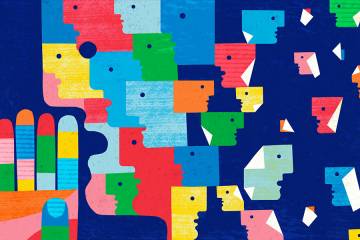
Image caption:Avi Rubin is a professor of computer science and technical director of the Johns Hopkins University Information Security Institute. The first person to expose the vulnerabilities of electronic voting in his book? Brave New Ballot: The Battle to Safeguard Democracy in the Age of Electronic Voting? (Random House, 2006), Rubin is a sought-after expert on computer security and applied cryptography.
Image credit: Will Kirk / Johns Hopkins University
Nov. 3, 2020, is going to test the machinery of our elections as they've never been tested before. We are conducting an experiment with our voting process for the most high-stakes election of our time—in the midst of a pandemic. This is a perfect storm.
In the past, security experts have worried about weaknesses in the infrastructure of American elections: potential compromises of voting machines, electronic poll books of registered voters, communications from polls to central tallying sites. We've worried about voter suppression in many forms. We've worried about foreign meddling, which came to pass in 2016. All these concerns are still real for the 2020 election, but now we're facing new challenges on top of them.
With COVID-19 risks prompting many to look for alternatives to in-person voting, our concerns have shifted to mail-in ballots, which many voters will be using for the first time this year. Although mail-in voting is much less prone to fraud than electronic systems, the abrupt transition to a new system isn't ideal, and there are increased risks of facilitating vote selling and voter coercion.
It does not help matters that President Trump has sent undermining and contradictory messages about mail-in ballots, sowing mistrust. Trump's appointed postmaster general has also given us reason to worry about the integrity of our mail system, threatening cutbacks on postal processing centers—then recanting under public pressure.
As someone who has studied many theoretical election security risks in the past, it's clear to me that this time the threats are real and immediate. Flexibility and patience will be key for this election: accepting that the U.S. is in crisis mode, that this election will look different from others before it, and that the results will be contentious and scrutinized.
State and local leaders must make election security a paramount concern and ensure that the confusion and chaos of the day deter no citizen from voting. Every voter should have a plan to get their ballot in early. If you're mailing, order your forms immediately and make certain you understand the process. Be absolutely sure to fill out the ballot correctly and package the envelope according to instructions, as ballots with errors may not be counted. If mail-in voting isn't your choice, find a solution that feels COVID-19 safe. In many areas, stadiums and arenas are being converted into socially distant voting centers.
Democracy depends not only on secure elections but on the widespread perception that elections are secure. The onus is on election officials and the public at large to make sure our voting takes place properly and transparently, with every ounce of security, integrity, auditing, and post-mortem processing we need to instill confidence in the results. Our entire democracy is at stake.
About The Democracy Project
The future of democracy as a system of government is increasingly uncertain. With a rise of populist forces globally and many existing democracies in regression, liberty itself seems under assault. In the United States, a diminished or warped democracy could have far-reaching repercussions for voting rights, the rule of law, education, the application of science, immigration, citizenship, and long-held societal norms we take for granted.
As we near an election in which many of the defining principles of democracy seem to hang in the balance, an array of Johns Hopkins experts will share their greatest hopes, their deepest fears, and their informed insights on the state of America's democratic experiment. Read more from The Democracy Project
Posted in Science+Technology, Voices+Opinion, Politics+Society
Tagged hopkins-votes









